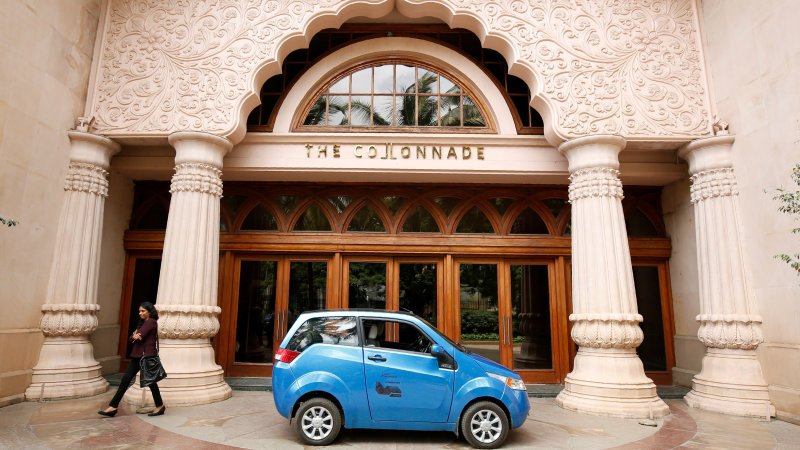Ford to explore strategic partnership with Indian automaker Mahindra

Terms laid out in a joint statement call for working together for up to three years in areas including mobility, connected vehicles, electric vehicles and product development. Ford wants to strengthen its distribution in India's $30 billion auto market, which is expected to become the world's third-largest by 2020, according to Automotive News. Mahindra, meanwhile, would benefit from Ford's reach in other emerging markets.
"Teams from both companies will collaborate and work together for a period of up to three years. Any further strategic cooperation between the two companies will be decided at the end of that period," the companies said.
Ford is among the top exporters of cars from India, with vehicle and engine plants in Chennai, Tamil Nadu and Sanand, Gujarat. The country is also Ford's second-largest worker base globally, with more than 14,000 employees. The company has invested more than $2 billion in India and plans further spending to establish a global engineering enter in Chennai to tweak products for the local market and more quickly adapt to changing consumer trends, Reuters reports.
The announcement comes after former Ford CEO Mark Fields, who was ousted in May, placed the company's business in India under review, and after his successor, Jim Hackett, was reviewing the company's strategy in the country.
India has proven a tough nut to crack for automakers such as Volkswagen, Fiat Chrysler and General Motors, which said in May it would stop selling cars in India from the end of this year. Meanwhile, Suzuki and Hyundai enjoy nearly two-thirds of the country's auto market.
Mahindra, based in Mumbai, is a diversified $19 billion conglomerate that operates in more than 100 countries. The company is perhaps best known for its farm equipment and its Mahindra & Mahindra Ltd. automaker division, which makes the Willys Jeep-licensed utility vehicle. It also has ventures in IT, financial services and hospitality.
Ford entered India in 1995 by way of a partnership with Mahindra, setting up a factory near Chennai that produced the Escort sedan. The two companies ended their partnership in 2005.
Nouvelles connexes


